Watch Video: "The U.S.‐China Confrontations and the Future of the International Order"
On March 3, 2019, representatives from ten think tanks from major countries around the world gathered in Japan for the public forum of the Tokyo Conference, a dialogue on the diverse array of issues facing the world today. The public forum aimed to provide panelists with the opportunity to exchange opinions on the U.S.-China confrontation and the future of the international order.
The first of the two public sessions focused on the potential results of a worsening trade war between the U.S. and China. The second session, covered here, focused on methods of defending and advancing the liberal world order.
Yasutoshi Nishimura, Deputy Chief Cabinet Secretary of the Japanese government, began his keynote by mentioning how the Japanese government views the US-China conflict, Nishimura repeated a comment made by Japanese Prime Minister Shinzo Abe, in which Abe warned that a tit-for-tat tariff battle would be of no benefit to anyone.
Meanwhile, some aspects of the WTO framework seem to be lagging behind the times, and Japan hopes to utilize the trilateral dialogue we have with the U.S. and the E.U. to engage in discussion regarding the creation of robust rules.
In addition, Nishimura also cited the proposal Prime Minister Abe made at the World Economic Forum in Davos in January, which argued that international rules need to be created to deal with data sharing. Nishimura believes that, "Japan should play a central role in providing a stage for international rule-making" at this year's G-20, TICAD, and other international conferences, in order to prevent division in the world and avoid barriers to the global economy.
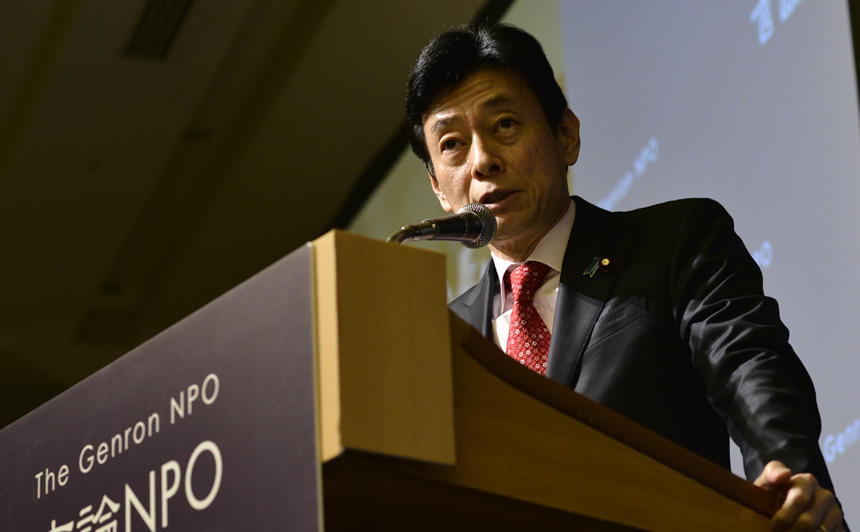
Volker Perthes, Director of the German Institute for International Security Affairs, made a statement that suggested he is optimistic about the future.
"I think we will not have a divided world order like in the cold war, but a multipolar one," he explained. Perthes believes that democracies will have to work with non-democracies, with the future being dependent on all those who benefit from the system actively defending it against "the unilateral impulse of some leaders" and "the geo-politicization of trade and other realms that by nature only work cooperatively."
Perthes sees a few potential paths to take, for example, like-minded countries need to preserve international arrangements even when great powers withdraw and keep the door open for them to come back. He thinks it may also be beneficial to explore new realms of cooperation where rules don't yet exist.
"Middle countries should take the chance to step into the gap to establish new regimes to control arms, new technologies, cyber security, etc. We could start even without the great powers," he said.
He concluded with a word of caution. "The multilateral order will only be sustainable if we allow it to develop in a flexible way."
Ettore Greco, Executive Vice President of Italy's Institute of International Affairs stated his belief that the G-7, the G-20 and other such bodies are "not meant to take specific measures to deal with global issues, but rather to give an impulse or loose guidance to other organization to cope with those issues."
"As you know," Greco reminded the audience. "The G-20 communiqué also includes a reference to reform the WTO. This needs follow-up."
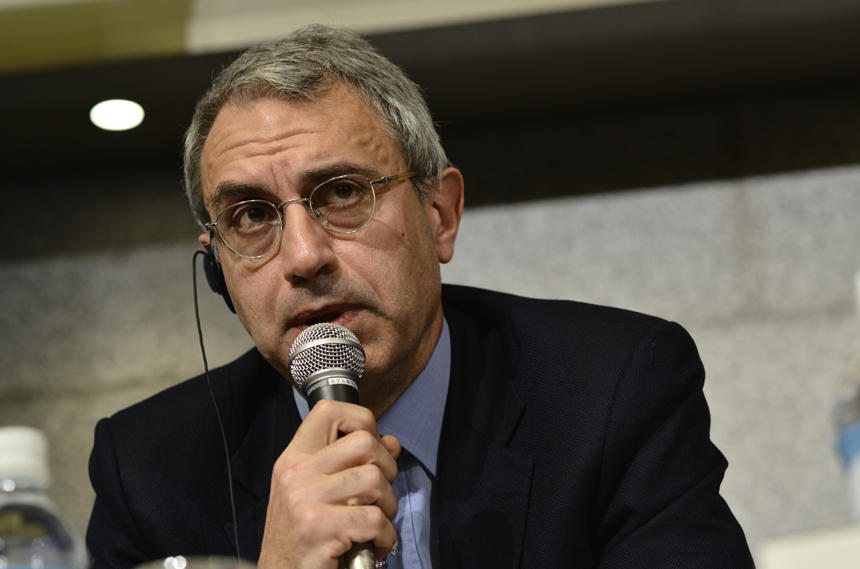
Sunjoy Joshi, Chairman of India's Observer Research Foundation brought up the fact that some countries are feeling a certain amount of angst regarding the fact that the multilateral rules-based international order is being subjected to "3rd degree interrogation" in the countries in which it was first promoted.
"The biggest threat to liberalism and the rules-based international order today has arisen not from revisionist states like China, or even Russia, but it has risen from the rise in nationalist populism in some of the world's most liberal democracies. And the tide is rising. It is not just America. That is a primary cause for concern."
Joshi believes that in order to prevail, we must find the reasons behind this trend.
"Otherwise, erstwhile liberal democracies will become the biggest reason for the collapse of the rules-based international order," he emphasized. "It will not be China."
Joshi referred to the many changes that have occurred throughout the world since the time of the Bretton Woods agreement.
"There are transitions in income distribution, which are leading to social inequality," he said. "There are demographic transitions taking place, and there are huge technology transformations which are changing the way jobs are created and the way people work."
Social changes such as these have to be addressed, and some of those aren't been discussed. Joshi went on to suggest that the answer to what form a rules-based multilateral order is going to be "more globalization not less."
"There are more conversations which need to take place," he said before adding that the binary framing of the discourse is outdated. "We live in a world of multiple polarities. There are far too many other stakeholders... which need to get in the conversation."
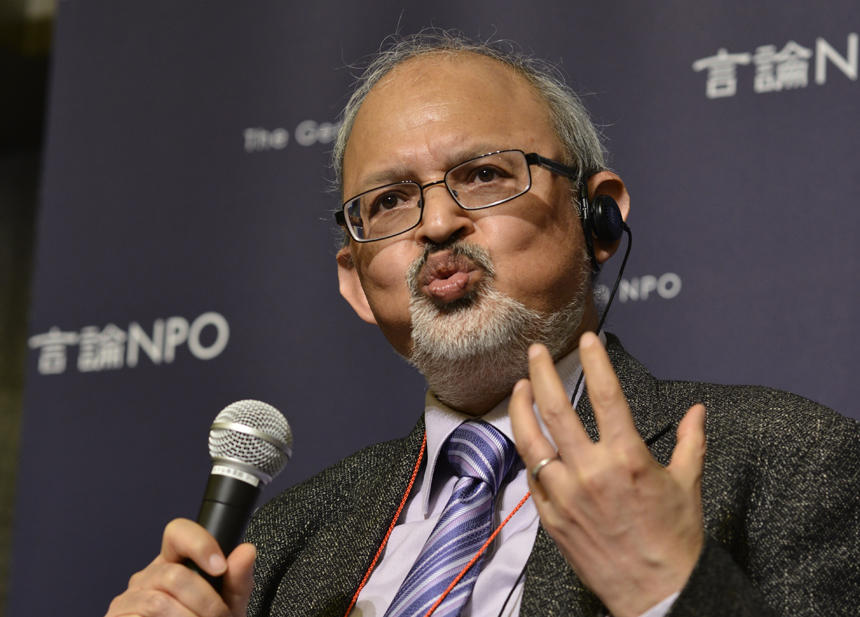
Leslie Vinjamuri of Britain's Chatman House informed the audience that thought-leaders in the U.K. show clear disagreement on whether the discussion should be about the rules-based order or the liberal international order.
"I think it's a very significant distinction," she said. "I'm more skeptical about the future of the liberal international order than I am of the rules-based order."
Vinjamuri agreed with Joshi's point that the greatest challenge to the liberal international order comes from the U.K., the E.U. and the U.S., one reason being that the order has always been geographically limited to West. She also agreed with others on the panel regarding the future form of the world order.
"Where we're heading is to a world with many poles, many actors. A very pluralistic world, but not in the liberal sense," Vinjamuri explained. "One in which there is much contestation about norms, values, and the way that we do things. But still, within the assumption that there should be rules."
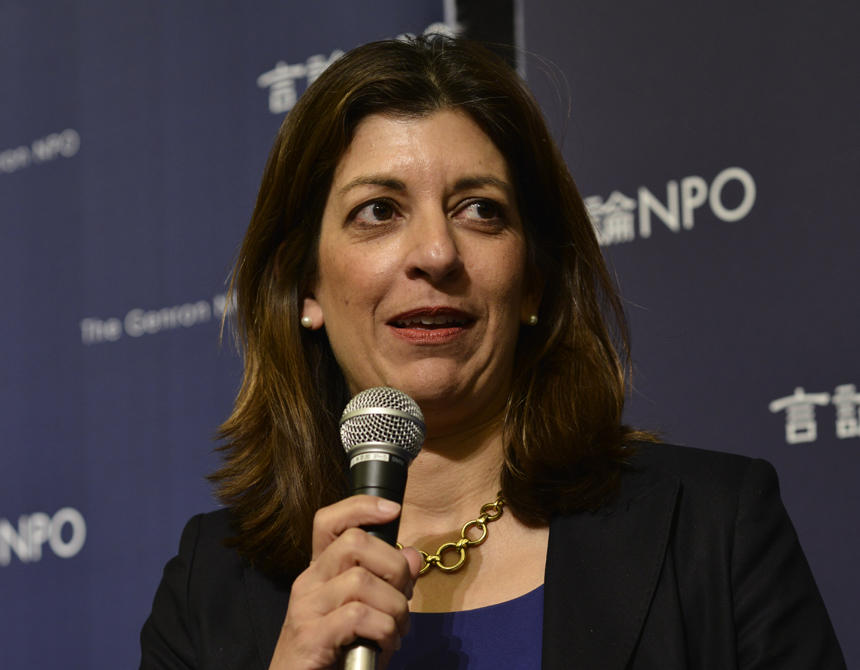
Carlos Ivan Simonsen Leal, President of the Getulio Vargas Foundation in Brazil, looked to the changing global financial balance for a better understanding, noting that more than half of the world's GDP is now located outside of the West and Japan.
"During the last 50 years, a series of acquired rights were given to populations in different countries, none ever asking against whom they were being acquired," Simonsen Leal explained. "That created a situation where the money available for innovation is being taxed to pay for other things."
While this is true in countries like Japan and most European countries, other countries in Asia have low debt, low taxation, and "lots of money available for innovation. It's not that EU doesn't innovate, it's that others are innovating more."
Simonsen Leal thinks that this has resulted in falling standards of living in western countries, and because the middle class is falling, there has been a subsequent increase in the election of nationalist, populist governments.
"The problem is not what the US is doing," he said. "But what it will have to do in order to be able to keep an independent and dominant strategy. Also, what is the willingness of other countries to sacrifice the present against the future?"
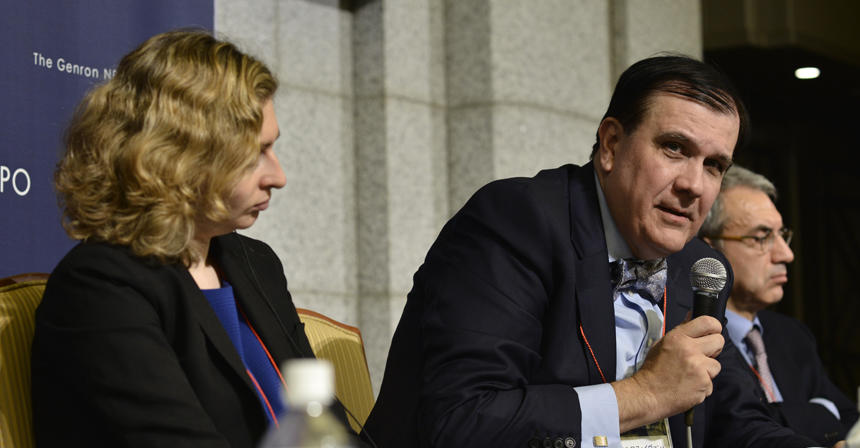
James Lindsay, Senior Vice President at the Council on Foreign Relations in the U.S., joined the discussion at this point. "History shows that all world orders end," he said. "The only issue is how long they last and how they end."
Lindsay agreed that the current world order has been facing challenges for some time now, though he disagreed on the cause. "I would say the greatest reason for the fracturing and fraying of the global order has been its very success. It delivered what it promised, but that meant a redistribution of power. It also meant the rise of transnational problems...and those problems have outstripped the institutions that we have created to help manage the order."
Lindsay believes that to preserve prosperity and security, we need more order and not less, however, that doesn't mean it will happen. "We run into what economists call a 'collective action problem' - the fact that it may be in our interests to act doesn't mean that we will because we have incentives to let somebody else do the heavy work," he explained.
"I think fundamentally what we have had for seventy years is an American-led order. The real question we face right now is whether that order is extended as the American share of global power is declining, or in the face of active U.S. opposition because it believes others are taking the benefits but not paying part of the price."
Fujisaki asked Lindsay to clarify a point about the necessity of globalization as a means of maintaining the global order, and Lindsay responded that he doesn't think globalization itself is the solution.
"What you need is cooperation. My point is that there is no guarantee you will get cooperation. There is a tendency to think that we can only go forward. I would suggest that history shows we can go backward."
Geun Lee of the Graduate School of International Studies at Seoul National University was asked to provide the South Korean position on the U.S.-China confrontation. "I think in the near future there will be two or three economic blocs, digital economic platforms based on the Chinese economy, the U.S, or perhaps Japan and the European Union," Lee said.
He thinks that one of the key issues of these digital economic blocs will be how to protect the digital flow of data and the infrastructure, and what will be important to finding a solution to that will be developments in quantum computing. "If you have fully realized quantum technologies, you can easily hack data," Lee said. "The best way to protect from this hacking is to develop the technologies of quantum communications."
However, due to the expense in developing these technologies, only countries like the U.S. and China, or a body like the E.U., can afford to develop them. "South Korea, which isn't a very rich country, has to depend on either the US or China to have these kinds of technologies." South Korea's position is that they will need to continue depending on the U.S. unless China becomes more pluralistic and begins to respects individual freedoms.
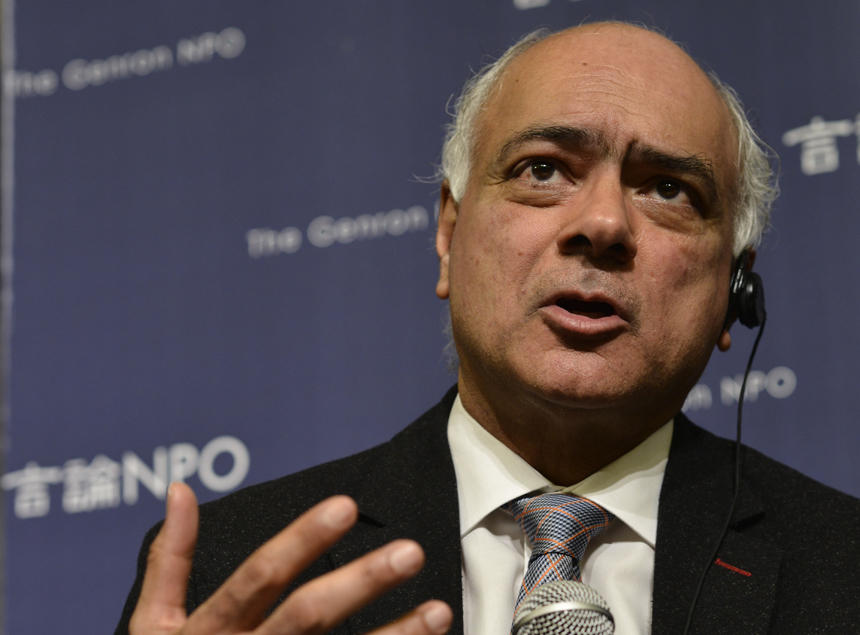
Rohinton Medhora, President of the Centre for International Governance Innovation in Canada, also looked to issues surrounding technology.
"How we deal as a global community with Big Data, and then looking beyond that, with artificial intelligence, will actually determine the answer to the question we are trying to address on this panel," Medhora stated, and explained that the world is already split into three digital blocs: the state-centric Chinese bloc, the firm-centric U.S. bloc, and Europe with its GDPR. A multinational corporation cannot operate and be compliant in all three blocs. Medhora asked whether or not the three blocs can be reconciled, but noted that he is optimistic because of two things.
"One is Prime Minister Abe's speech in Davos, and his thought that the G-20 should get its head around this question of how we deal with data," Medhora explained. "The other is a very interesting initiative, and I think it's an open secret. The French, and I think the Canadians, are going to propose at the G7 an IPCC for artificial intelligence. Create a process that does definitive data analysis on the implications for AI - just the way the IPCC does for climate change - and use that as a basis for sensible discussion on the subject."
Keng Yong Ong, Executive Deputy Chairman of the S. Rajaratnam School of International Studies in Singapore, described how ASEAN countries place more importance on the regional order than the international order.
"Can more regional orders replace one big liberal or international order?" Ong asked. "People are thinking about some other alternatives. The debate is still going on among established countries...about the next new world order. That is something to think about." Ong suggested that multiple regional orders may be possible, but there may need to be compromise on a broader international order that covers issues of technology and data.
Towards the end of the discussion, Prestowitz was asked to provide a summary of his opinion of the issues facing the international order.
"Probably, the most tightly-knit, rules-based order has been the E.U., but the E.U. is now under strain," he added. "If the E.U. can't stick together, how does the broader global order stick together under the stresses that we have been talking about?"
Joshi brought up the point that the economic balance is shifting, comparing India's GDP of almost 2.7 trillion USD to Canada's GDP of under 1.7 trillion USD.
"There is logic why the G-7 needs to be reconfigured. India's growing at least 7% a year, so we're talking of an economy that in a few years...talks of being a 10-trillion-dollar economy," he said. "It is going to be interacting with countries at a very different level. That is why I keep on questioning this whole notion of us going back to a bipolar world. We cannot."
Simonsen Leal added, "If you want to play the game, you have to fix your fiscality. This is the only message. It is very difficult because voters don't realize that. It is easier to do that in China with a secret police than do it in any democracy."
Greco agreed, saying, "I think Carlos was very right in insisting on some economic dynamics, which has much to do with internal (domestic) situation, and this is a point that sometimes we neglect."
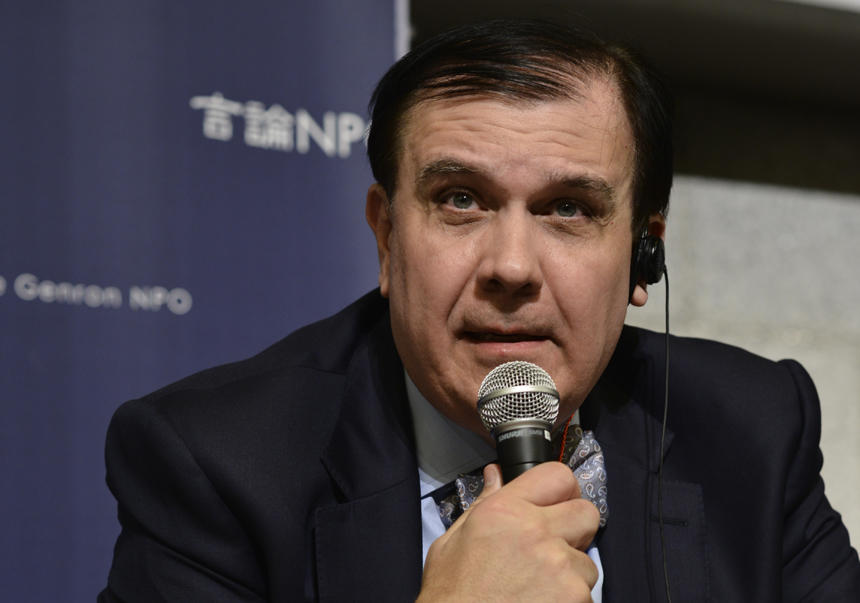
Alice Ekman, Head of China Research at the French Institute of International Relations, asked, "How can we agree to govern something if we don't even agree on the basic definition? How can we agree on cyber-governance, if we don't even agree about what the internet is?"
Ekman thinks that if agreements can be made regarding the fundamental definitions, bridges between institutions can be built. "If there is no common approach to security," she added. "There is no way we can develop security governance together.
After a question period answering questions from the audience, the discussions were brought to an end. Genron President Yasushi Kudo took to the podium to present the Tokyo Conference Statement to the Group of Seven Summit in France, which included a series of recommendations drawn up by the experts who took part in the Tokyo Conference 2019.
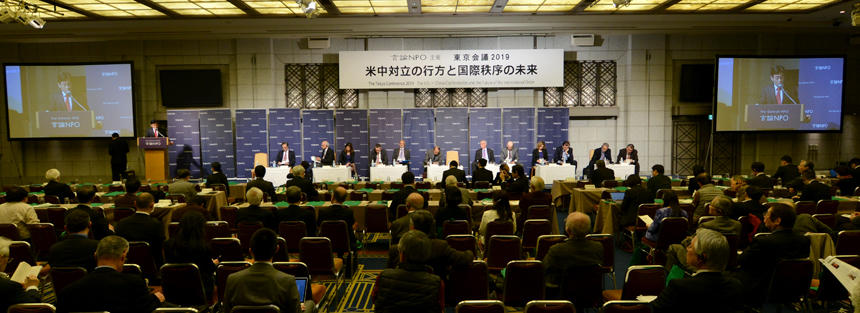
Briefly summarized, the statement calls on the G-7 to reconfirm and strengthen the values of the liberal democratic international order. It encourages the G-7 to embark on a campaign to update and reform existing international institutions, and to proactively address inequality issues and the income gap while aiming for sustainable and inclusive growth. The conference also asks the G-7 to accelerate efforts to make democracy more resilient and competitive, and to seek out deeper solidarity with other democracies that share liberal, multilateral ideals.
Kudo formally presented the Tokyo Conference Statement and its recommendations to Laurent Pic, French Ambassador to Japan, who then addressed the Conference.
"We are in a globalized world," Pic began. "We cannot solve issues within our own borders anymore. We need more cooperation internationally."
He lamented the fact that, "more players are challenging the international system they put in place," but also noted that one reason behind that phenomenon is rising inequality both within countries and among them. That has eroded the confidence citizens have in national and international institutions, because to them, globalism seems to work only for the elite. He described the G-7 and G-20 presidencies as being about representing the rules-based world order, but added that they recognize the need for reform.
"The rules of the current order (haven't been) efficient enough, inclusive enough, or enforced enough to reach the goals that were expected of them," he explained. "We need a renewed approach to avoid the collapse of this order. We need a different order with more legitimate organizations."
Pic pointed to some achievements made in bringing "all voices together in agreement", such as the Paris Agreement. He also pointed to some future goals that should be adopted, such as turning the focus towards Africa in order to bring them into the world order and reduce inequality there.
"There are lots of challenges, and we are conscious of that, but this is the start of the process," he said. "We think that our objectives are consistent with the statement the Tokyo Conference has prepared for presentation to the G7 Summit."
After the Ambassador described France's goals for the G-7 presidency, Kudo thanked him for participating, and brought the public forum discussions for Tokyo Conference 2019 to a close.
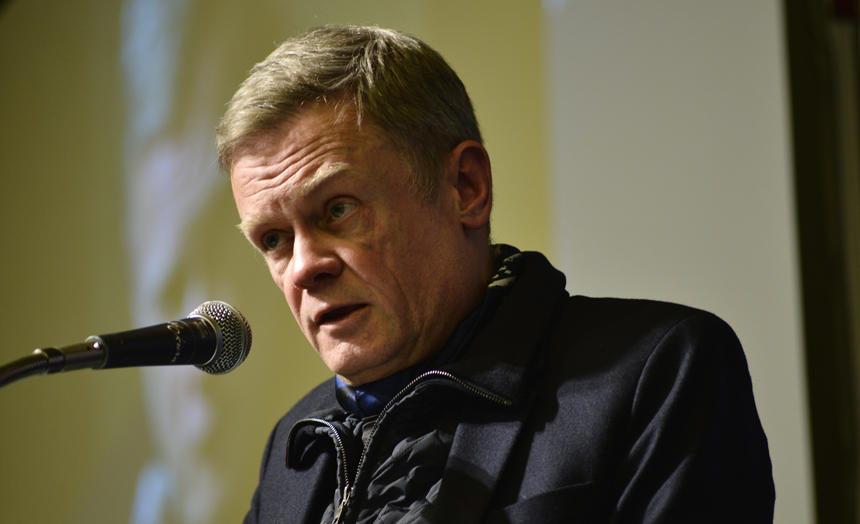
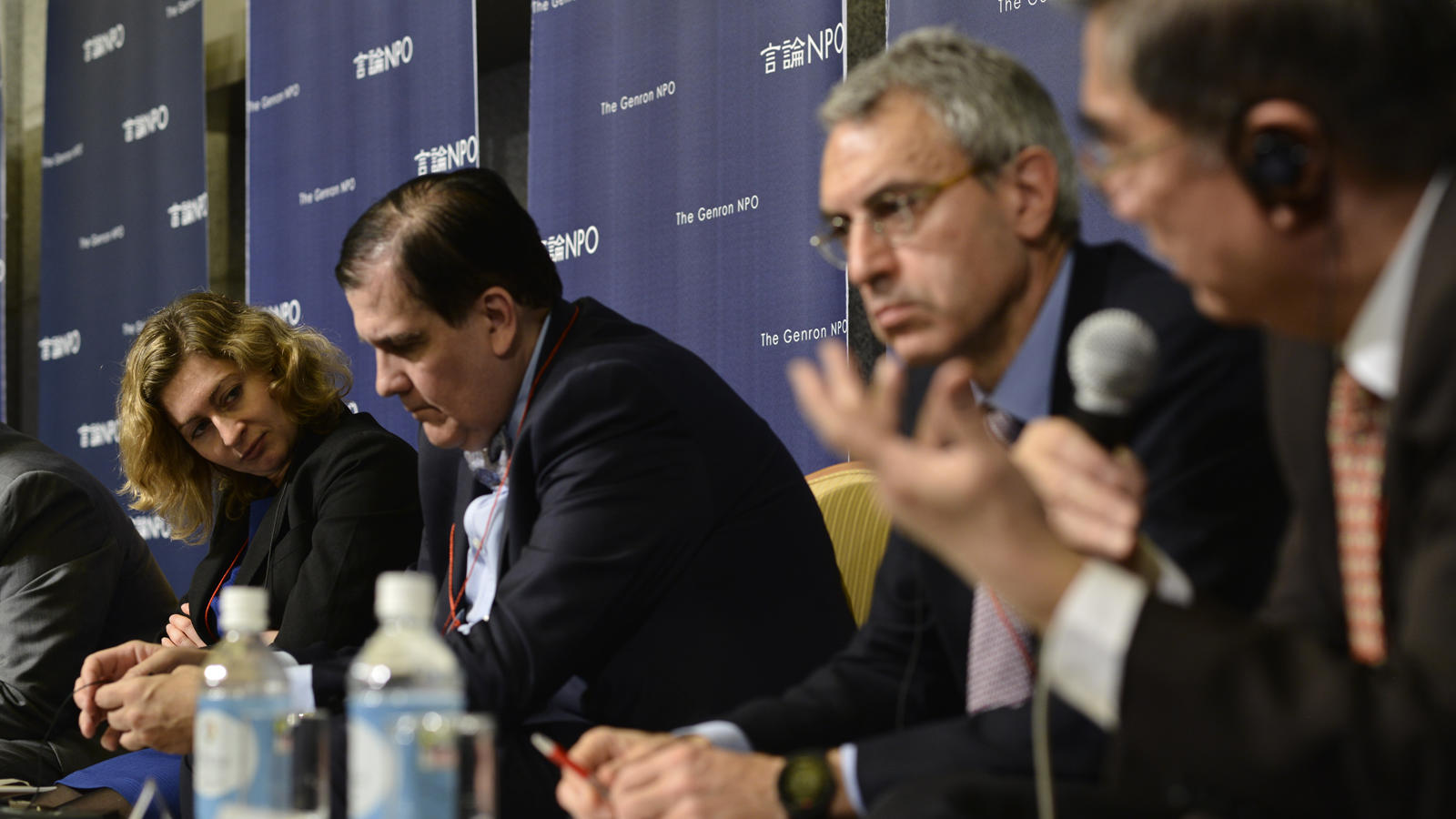
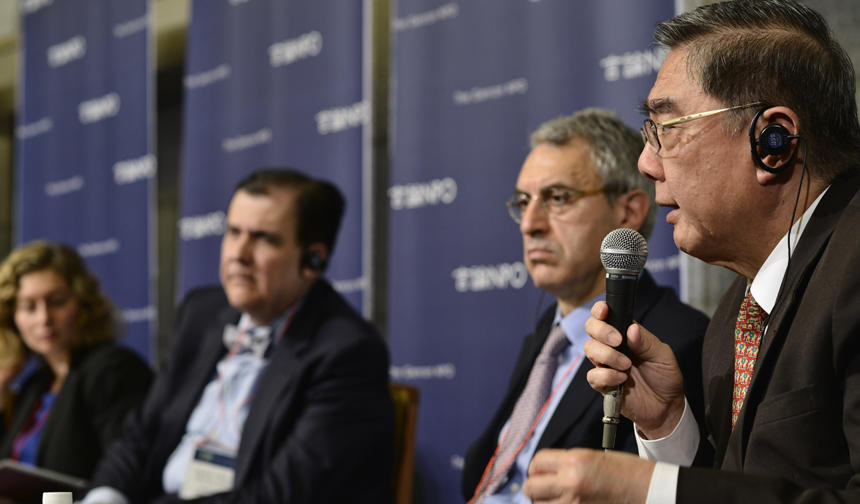
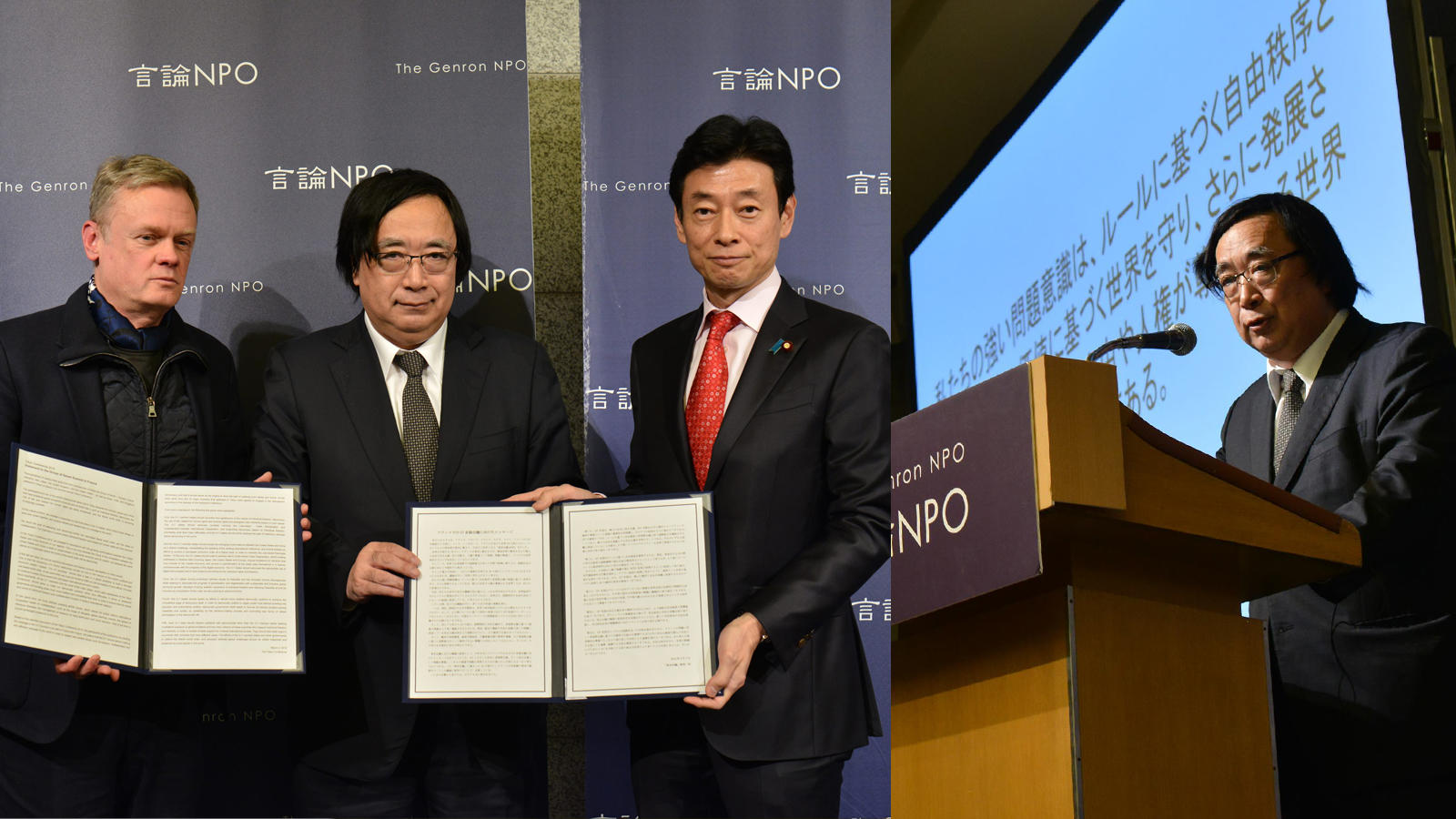
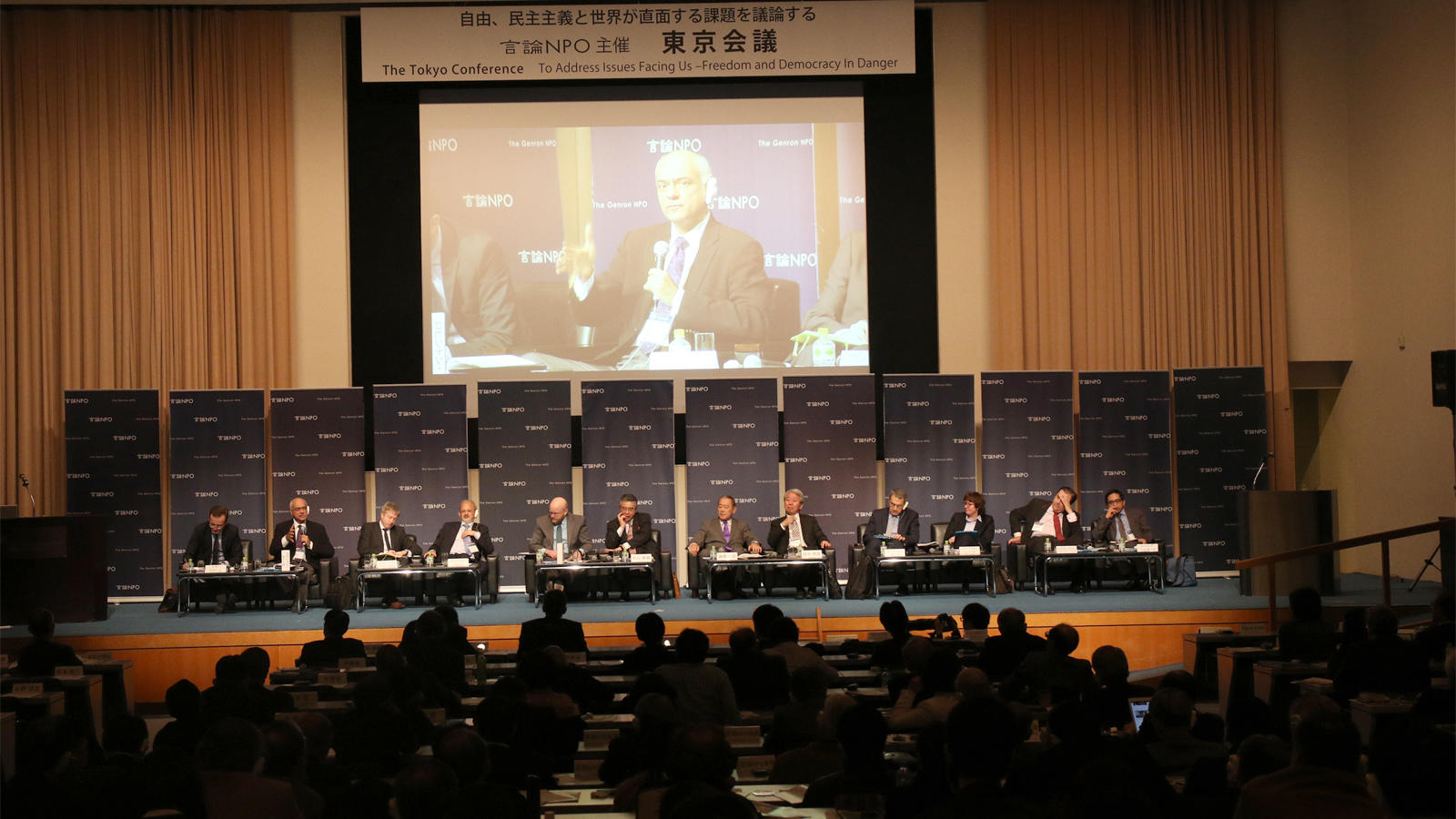
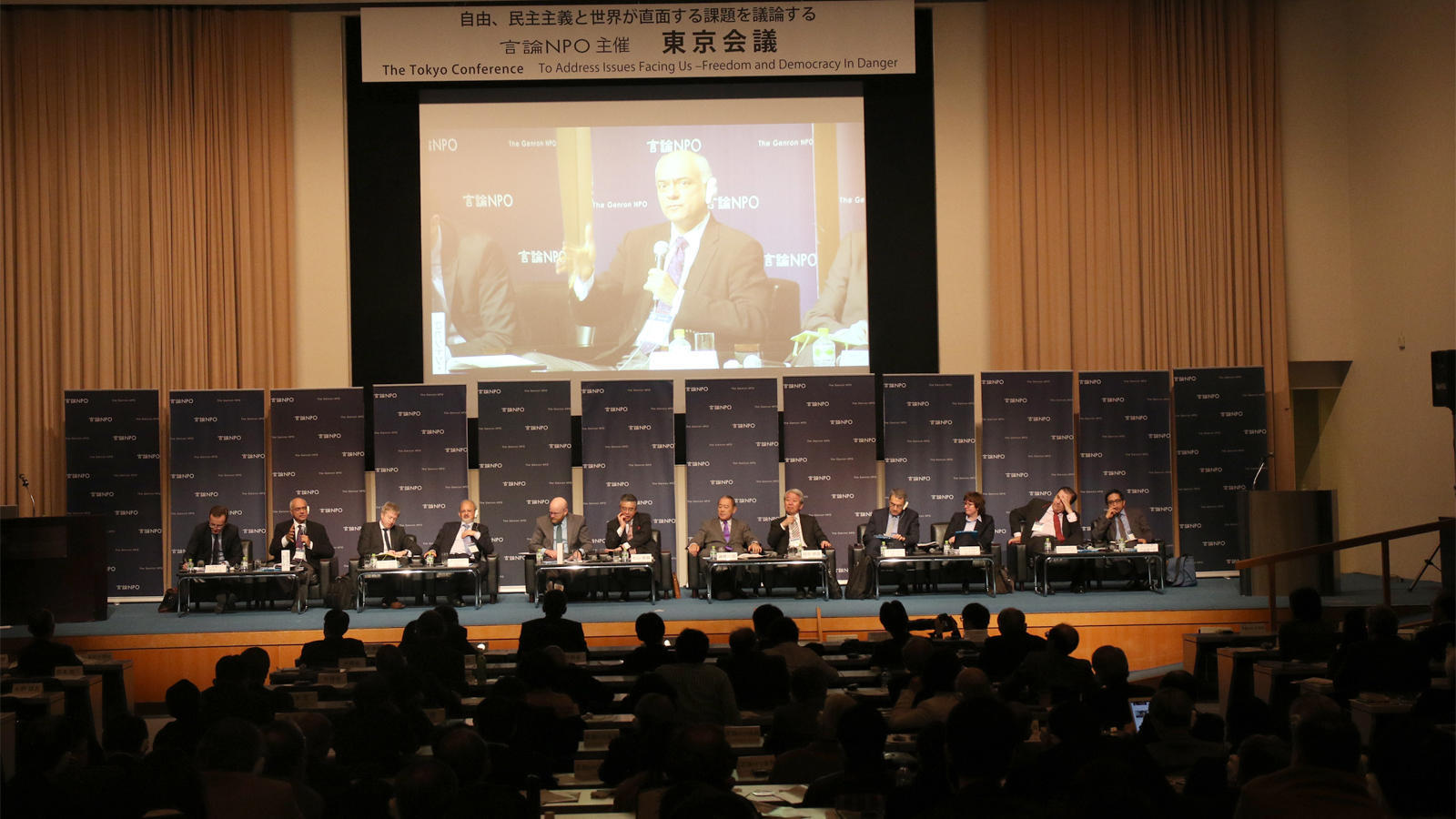
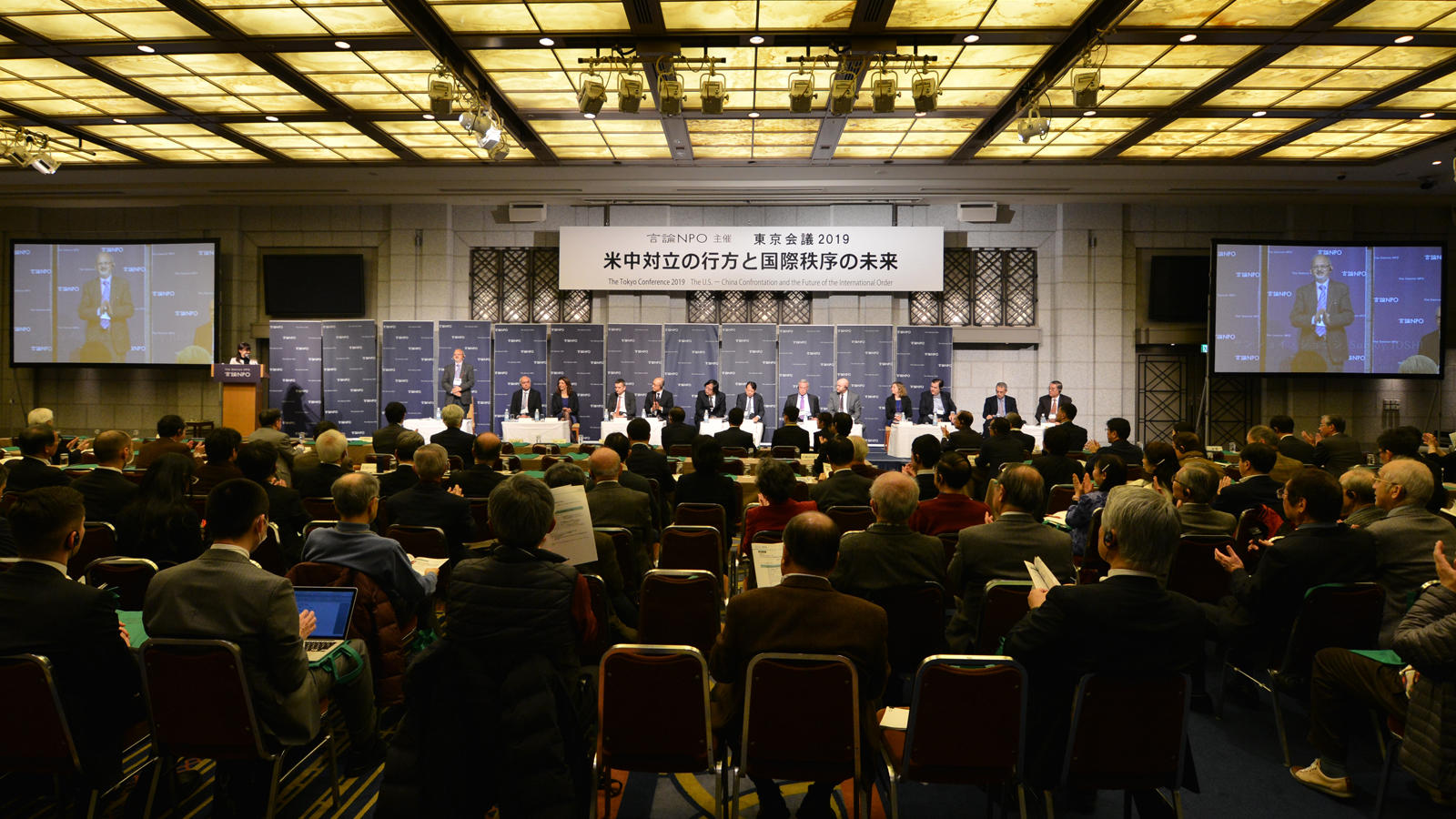
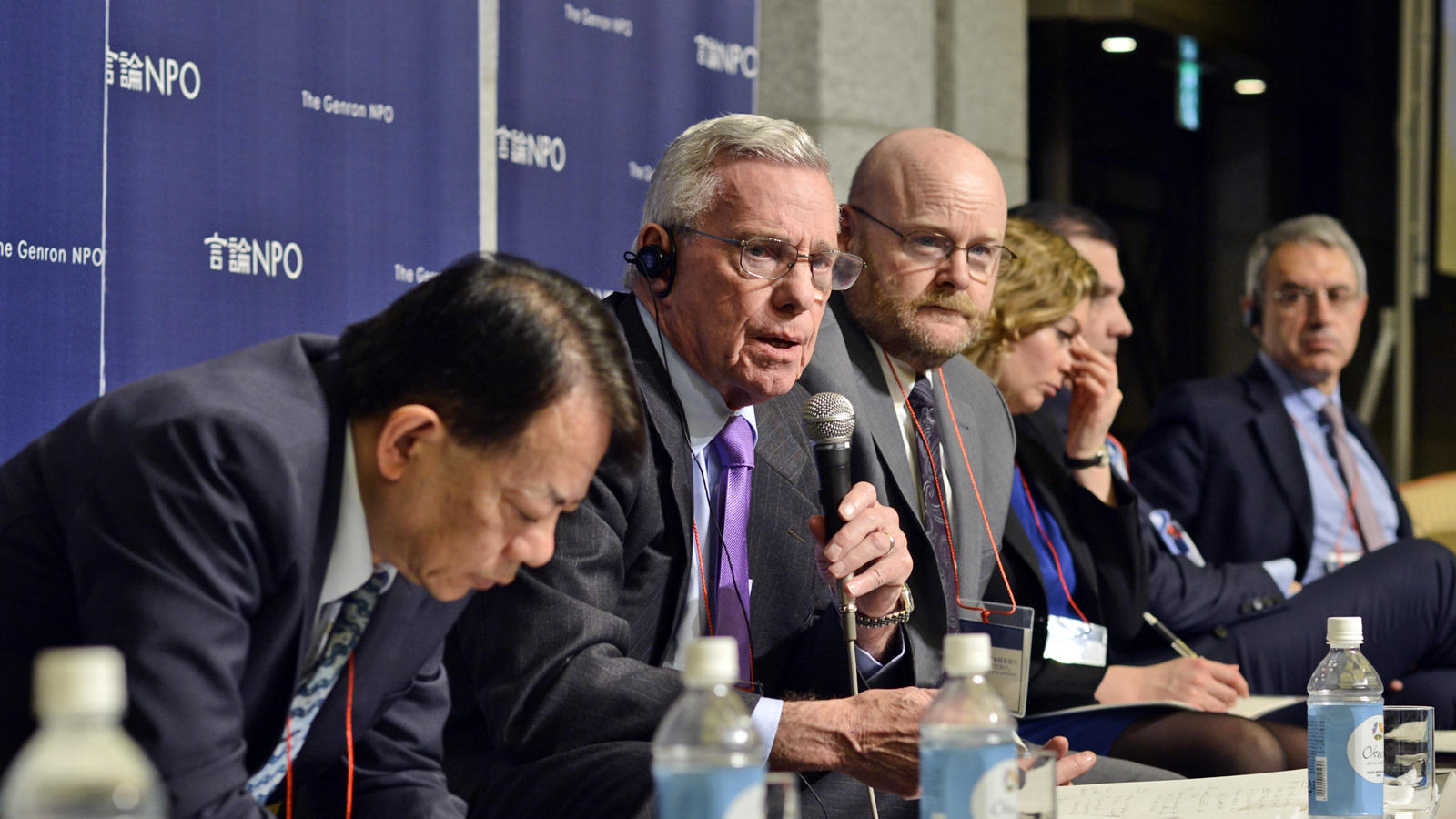
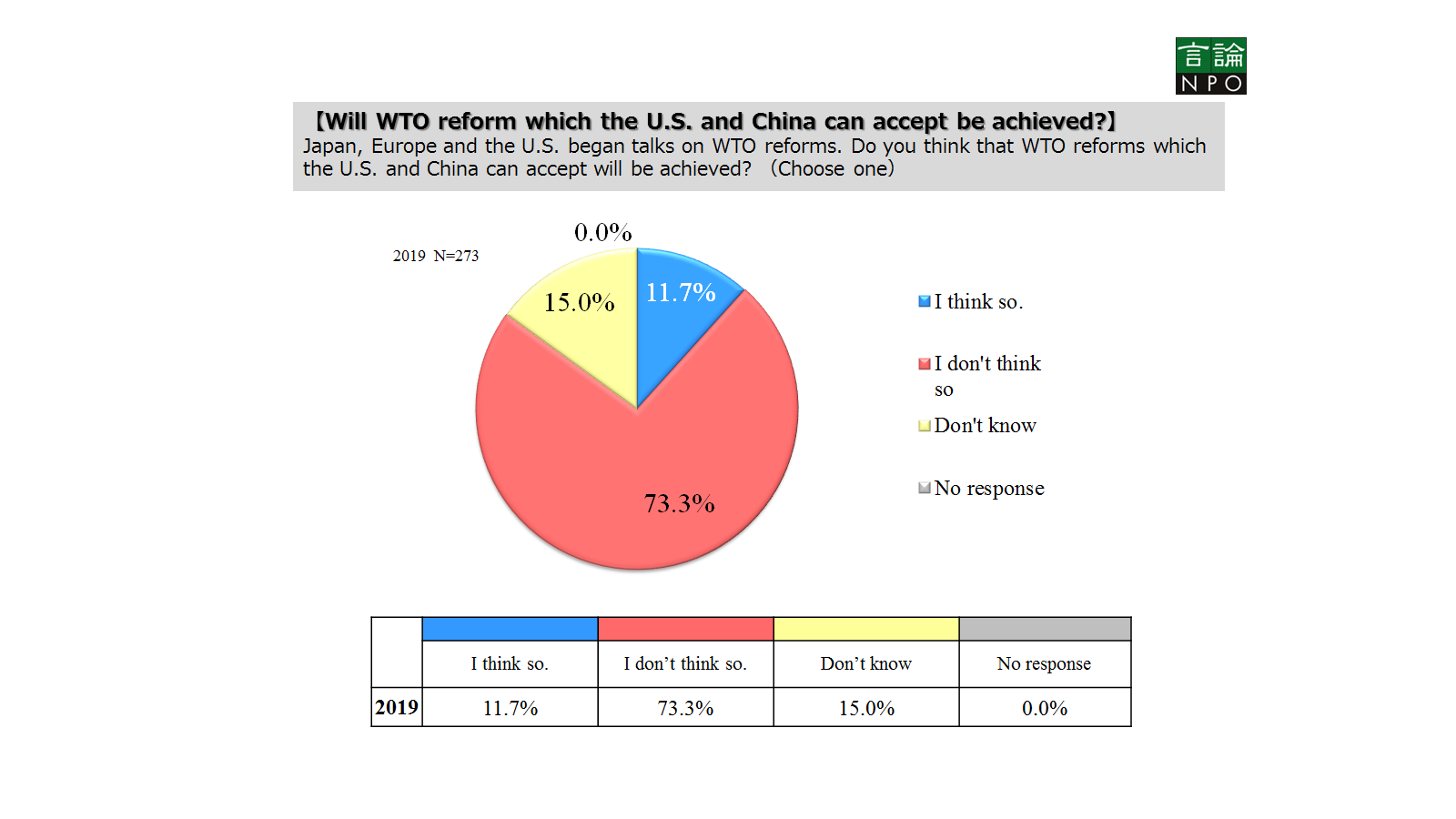
Post a comment